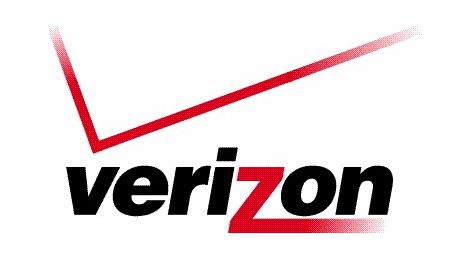Verizon dropping almost all phone plans in favor of shared data, nixing unlimited data
The new plans will encourage users to link multiple data-ready devices

Sign up for breaking news, reviews, opinion, top tech deals, and more.
You are now subscribed
Your newsletter sign-up was successful
Verizon Wireless announced plans to discontinue the majority of its existing phone plans today, in favor of shared data plans that will allow multiple family members and up to 10 devices to draw from a single pool of monthly data.
The plans will encourage users to link devices like laptops and tablets to their accounts, and a Verizon spokesperson told TechRadar via email that the carrier plans to support more devices in the future.
These devices previously required their own expensive data contracts, but Verizon Wireless' new plans will allow them to share data at a reduced overall cost to consumers.
At the same time, though, customers who plan to continue using only a single device could end up spending more.
Most of the new plans come with unlimited calling and texting, which not every user needs.
Existing customers will be able to keep their current plans or move to the new ones, with the exception of users with unlimited data plans, who will have to choose a new plan when they purchase new phones - unless they pay the full, unsubsidized price (i.e. $650 instead of $200 for an iPhone 4S).
Interestingly, customers on the new plans will not be charged extra to use their smartphones as mobile hotspots for tethering, though the data usage will count against their monthly allowances.
Sign up for breaking news, reviews, opinion, top tech deals, and more.
How much would you pay for shared data?
Verizon previously announced that existing 3G customers who wished to shift to a faster 4G connection would be forced to give up their "grandfathered" unlimited data in favor of the shared data plans.
Now the details of Verizon's "Share Everything" plans have been announced.
On top of $40 for calls and texts, 1GB of monthly data will cost $50, 2GB will cost $60, and every additional 2 GB/month will cost an extra $10 after that.
Data allowances can be adjusted month-to-month, but overages will cost customers $15 per GB.
Previously, a data plan for a non-phone device cost at least $30 a month. Now adding a tablet will cost $10, and adding a USB data dongle for a laptop will cost $20.
With the exception of a single $40 limited-call and text plan for "dumb" phones, all of Verizon's existing limited plans will be eliminated.
The existing $30 data plans for single, non-phone devices will still be available.
Unlimited calling and texting will no doubt make the plans seem more attractive to customers, though the reality is few people need those benefits.
Data, on the other hand, is a valuable commodity, a fact Verizon is using to its advantage.
Other carriers will follow suit
The new plans will allow Verizon to continue to grow now that most Americans already have cell phones, and other carriers are likely to follow suit.
AT&T is expected to announce its own shared data plans soon, and Sprint and T-Mobile would have to have something unique up their sleeves to defy the changes brought by their two biggest competitors.
But a T-Mobile spokesperson told TechRadar via email that the carrier has no intention of changing its plans.
"T-Mobile believes consumers today do not want a 'one size fits all' approach to shared family data plans, nor would they benefit from that model," the representative said.
The statement continued that T-Mobile believes "customers who pay more, should get more," "data should be worry-free," and "data plans should be flexible and affordable," indicating that the carrier has no plans to stop offering unlimited data.
Meanwhile, a Sprint spokesperson offered the following statement to TechRadar: "Current competitor data pricing on smartphones is already complex, driving customer worries about incurring data overage.
"The concept of sharing a monthly data allowance across a family of devices significantly increases the potential of a surprise monthly bill due to data overage charges and driving greater customer dissatisfaction."
The spokesperson added that they, too, have no plans to stop offering unlimited data.
Via ABC
Michael Rougeau is a former freelance news writer for TechRadar. Studying at Goldsmiths, University of London, and Northeastern University, Michael has bylines at Kotaku, 1UP, G4, Complex Magazine, Digital Trends, GamesRadar, GameSpot, IFC, Animal New York, @Gamer, Inside the Magic, Comic Book Resources, Zap2It, TabTimes, GameZone, Cheat Code Central, Gameshark, Gameranx, The Industry, Debonair Mag, Kombo, and others.
Micheal also spent time as the Games Editor for Playboy.com, and was the managing editor at GameSpot before becoming an Animal Care Manager for Wags and Walks.
